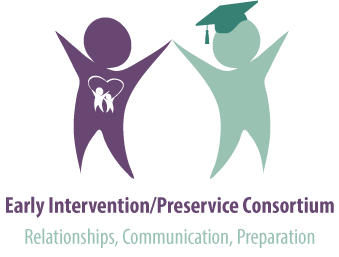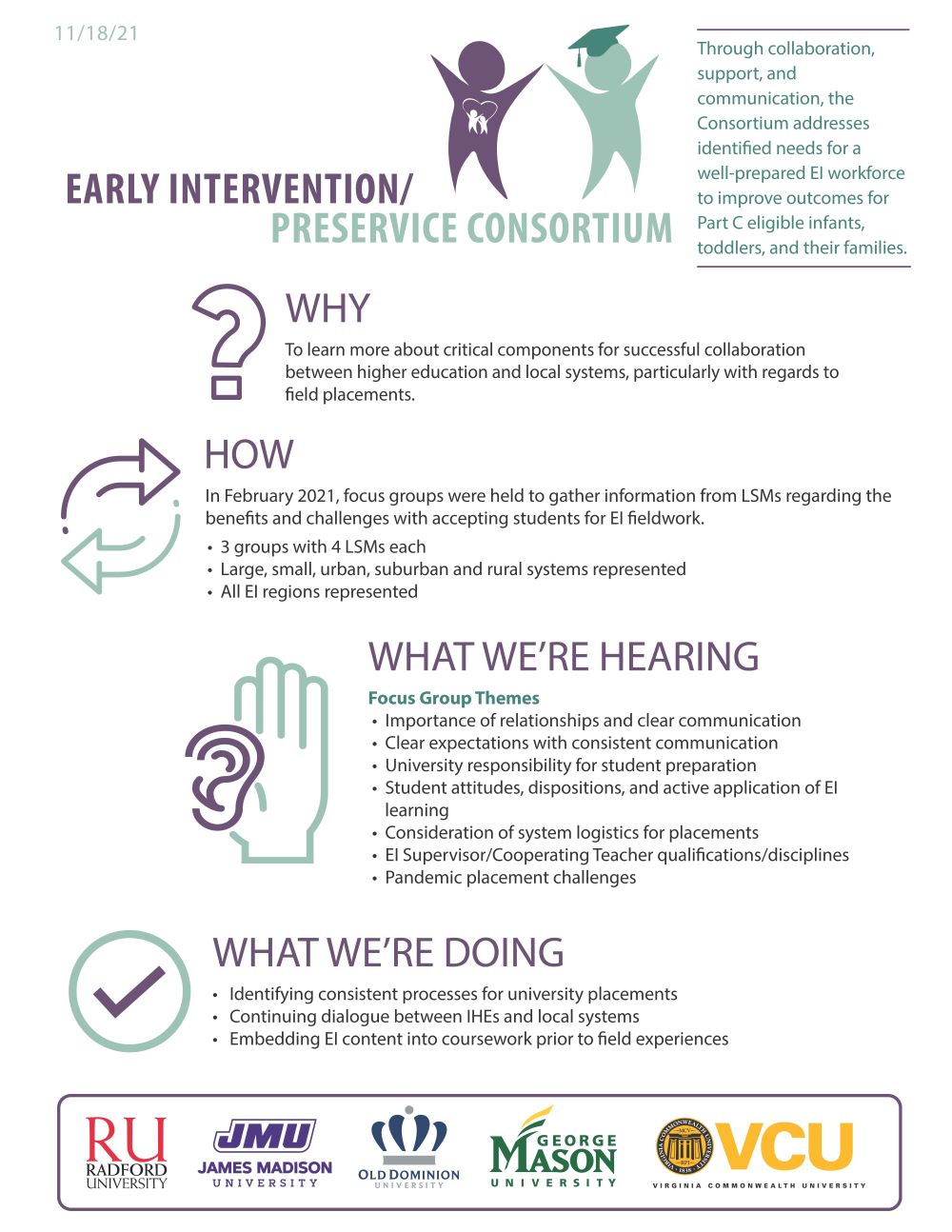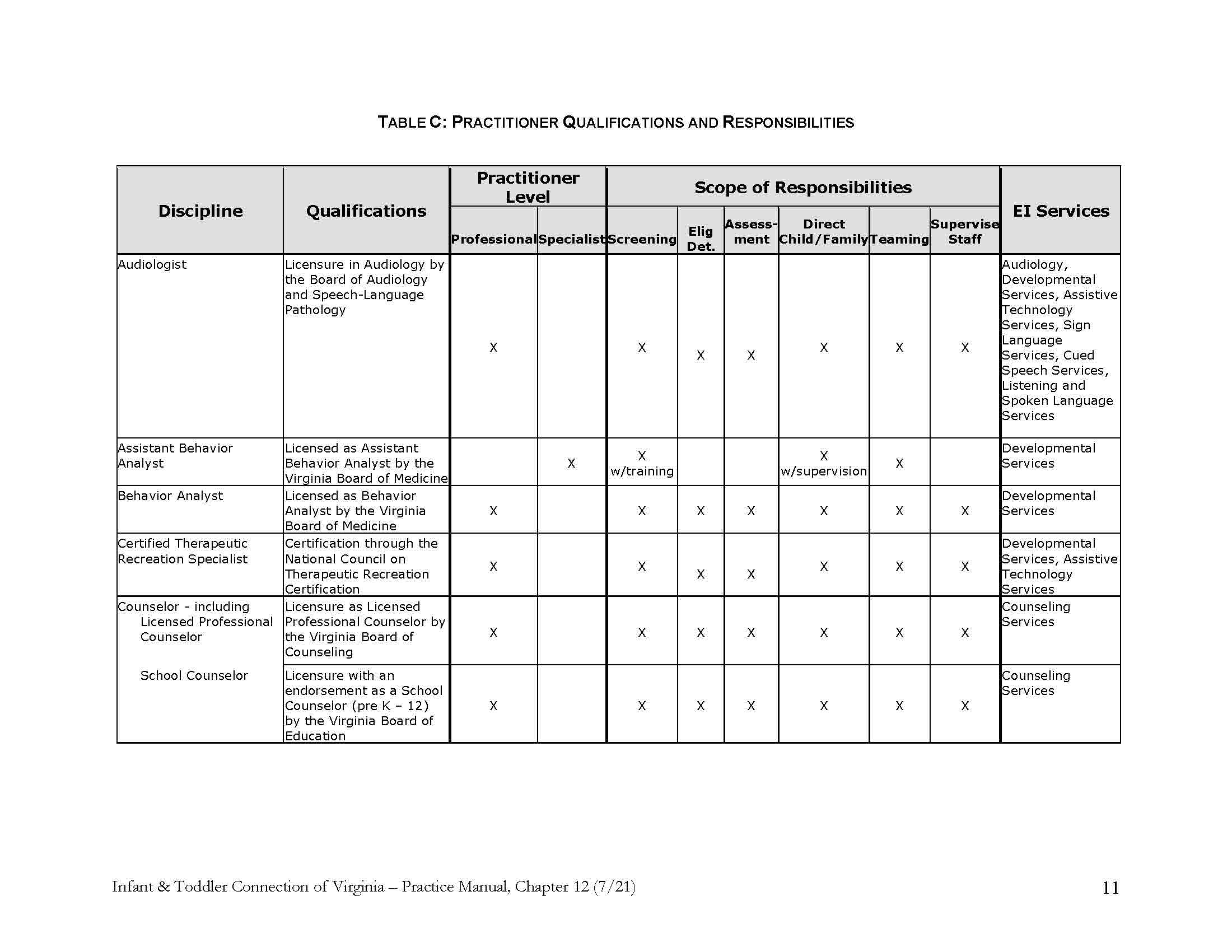Virginia Early Intervention/Preservice Consortium
 The VA Early Intervention/Preservice Consortium provides opportunities for faculty and staff across Virginia universities with Early Intervention/Early Childhood Special Education programs to collaborate to improve the availability of high quality student placements, build stronger relationships with local EI systems, conduct research, and share resources for educating future early interventionists. Through collaboration, support, and communication, the Consortium addresses identified needs for a well-prepared EI workforce to improve outcomes for Part C eligible infants, toddlers, and their families. Contact Cori Hill (cfhill@vcu.edu) for more information or to join the Consortium.
The VA Early Intervention/Preservice Consortium provides opportunities for faculty and staff across Virginia universities with Early Intervention/Early Childhood Special Education programs to collaborate to improve the availability of high quality student placements, build stronger relationships with local EI systems, conduct research, and share resources for educating future early interventionists. Through collaboration, support, and communication, the Consortium addresses identified needs for a well-prepared EI workforce to improve outcomes for Part C eligible infants, toddlers, and their families. Contact Cori Hill (cfhill@vcu.edu) for more information or to join the Consortium.
Early intervention (EI) is a rewarding career that will offer you the opportunity to make a difference in the lives of infants and toddlers with disabilities or developmental delays and their families. The primary role of an EI service provider is to support families to increase their child’s participation in everyday routines and activities. EI service providers use coaching interactions during in-person or virtual EI visits to help caregivers develop their abilities to interact with their children in ways that support their child’s development. Visit the VA Early Intervention Videos page or the VEIPD Videos YouTube Channel to find many videos about the importance and benefits of EI and to listen to families and service providers share their stories.
Early intervention (EI) is a rewarding career that will offer you the opportunity to make a difference in the lives of infants and toddlers with disabilities or developmental delays and their families. The primary role of an EI service provider is to support families to increase their child’s participation in everyday routines and activities. EI service providers use coaching interactions during in-person or virtual EI visits to help caregivers develop their abilities to interact with their children in ways that support their child’s development. Visit the VA Early Intervention Videos page or the VEIPD Videos YouTube Channel to find many videos about the importance and benefits of EI and to listen to families and service providers share their stories.
Check out the infographics below to learn about the Consortium's endeavors:






 Are you a faculty member who is looking for resources and tools to expand and embed information about Part C, early intervention or children birth to age three with disabilities into your coursework? Are you a student who is interested in a career in early intervention (EI)? This page is a starting place to link students and faculty to information about early intervention.
Are you a faculty member who is looking for resources and tools to expand and embed information about Part C, early intervention or children birth to age three with disabilities into your coursework? Are you a student who is interested in a career in early intervention (EI)? This page is a starting place to link students and faculty to information about early intervention.
